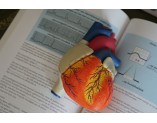Depression
The changes that often come as we get older, retirement, the death of loved ones, increased isolation, medical problems, can sometimes lead to depression. Depression prevents those that suffer from it from experiencing happiness and joy in everyday life, but its effects go beyond just mood.
Depression also impacts sleep, appetite, energy levels and physical health. However, depression is not a normal part of aging, and there are many ways to identify the symptoms.
What is Elderly Depression?
Depression is a real and treatable medical disorder; it is not a normal part of aging. However, older adults are at a greater risk for experiencing depression. If you are worried about a loved one, offer to go with him or her to see their doctor to be diagnosed and treated.
How Do I Know If It's Depression?
Someone who is depressed has feelings of despair or anxiety that last for many weeks at a time. He or she may also experience:
- Feelings of hopelessness and/or cynicism
- Feelings of guilt, remorse and/or powerlessness
- Irritability, agitation
- Loss of interest in activities
- Weariness and decreased energy
- Difficulty focusing, remembering details and making decisions
- Insomnia or sleeping too much
- Overeating or loss of appetite
- Thoughts of suicide, attempting suicide
- Aches or pains, headaches, cramps, or digestive problems that do not get better, even with treatment
How is Depression Different for Older Adults?
Older adults are at a greater risk for depression due to various contributing factors. Approximately 80% of older adults have at least one chronic health condition, and more than 50% have two or more. Depression is more common in people who have other illnesses or whose daily functions become limited.
Depression in elderly people often goes untreated because many think that it is a normal part of aging and a natural reaction to chronic illness, loss and social change. Depression can be a side effect of some medications frequently prescribed to older persons, such as medications that treat hypertension, and conditions such as stroke, heart attack or hip fracture are known to be associated with the development of depression.
Warning Signs of Elderly Depression
Depression can have damaging effects among the elderly. It increases the risk for cardiac diseases and impairs a person’s ability to recover from other illnesses. For instance, symptoms such as hopelessness may discourage older individuals from following their treatment. Depression also increases the risk for mortality.
Depression is the most significant risk factor for suicide, and suicide is more common among older individuals than any other age group in the U.S. The elderly make up about 13 percent of the U.S. population, but they account for 20 percent of deaths by suicide, according to the National Institute of Mental Health.
While it's normal to experience some grief during major life changes, clinical depression lasts for many weeks and should be treated by a professional as soon as possible. If you suspect that your parent or loved one is suffering from depression, pay attention to these signs:
- Irritability
- Loss of Self-Regard
- Social Withdrawal and Isolation
- Increased Pain
- Recent Illness or Surgery
- Recent Loss
Treatment Options for Senior Depression
When it comes to elderly depression, each patient is different and requires a personalized treatment approach to his or her unique situation and condition. Often the treatment plan will combine the following different approaches:
- Medication
- Therapy
Don't Let Your Loved One Suffer
So what's the bottom line about elderly depression? Don't let it go untreated. If you suspect your parent is suffering from minor or major depressive symptoms, encourage him or her to get help.
How Do I Find Help?
Isolation and loneliness are the most common causes of depression. Some form of elder care can make up for insufficient social support and alleviate some of the difficulties associated with living alone and provide assistance for adults who suffer diminished mobility due to illnesses or can no longer drive. Senior caregivers are also a good choice to provide help for elderly loved ones suffering from illness and disability, chronic and severe pain or are recovering from surgery.
Assisted living is an option for seniors who wish to live in their own apartment, private home or residential care community while enjoying the freedom to do as they wish. These facilities provide care for seniors but also provide a level of independence necessary to allow them to continue enjoying their normal lifestyle. Seniors who require assistance but do not wish to relocate to a nursing home facility appreciate these senior living or long term care options as this kind of independence can make a difference for seniors suffering from depression.
In-home care and assisted living programs provide much welcomed companionship and help seniors remain safe and active. These types of care providers plan and prepare meals, assist with shopping, errands, and everyday activities such as taking medication and personal hygiene.
If your loved one is experiencing depression or anxiety over his or her household or health, there are many resources available that can be of assistance and provide peace of mind.









